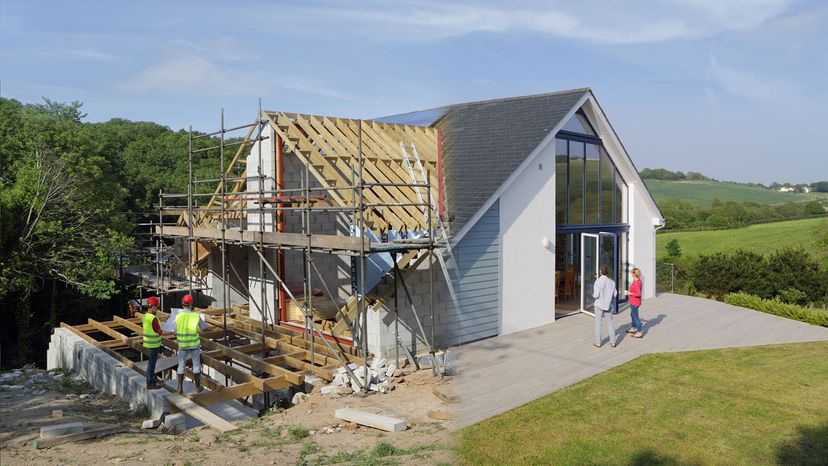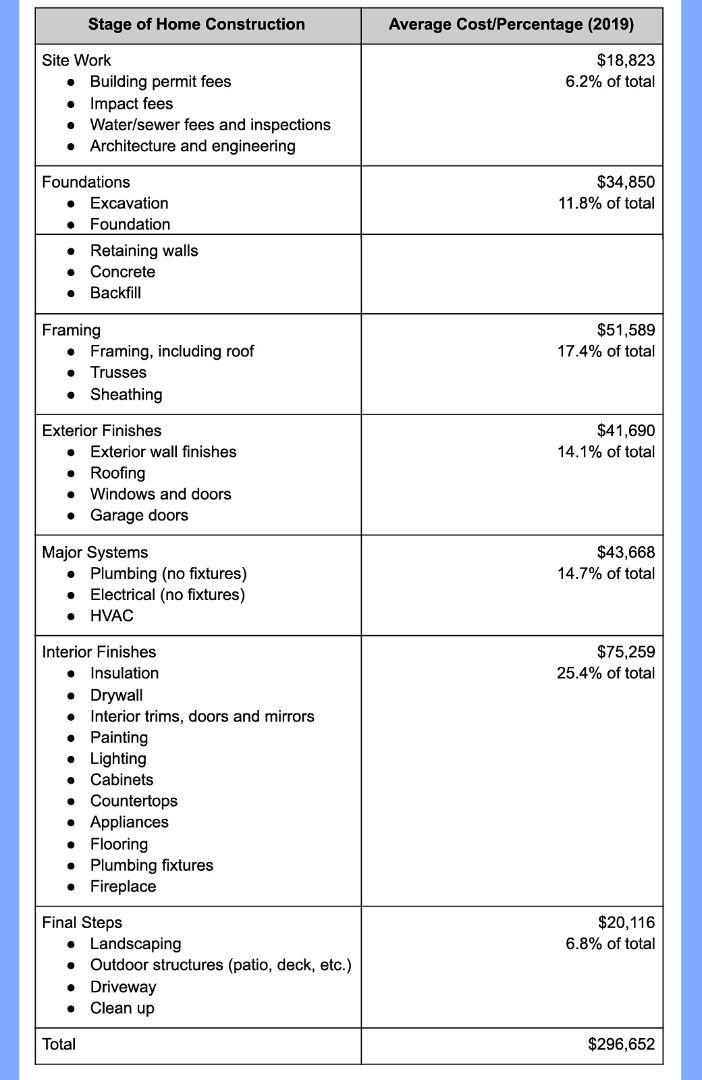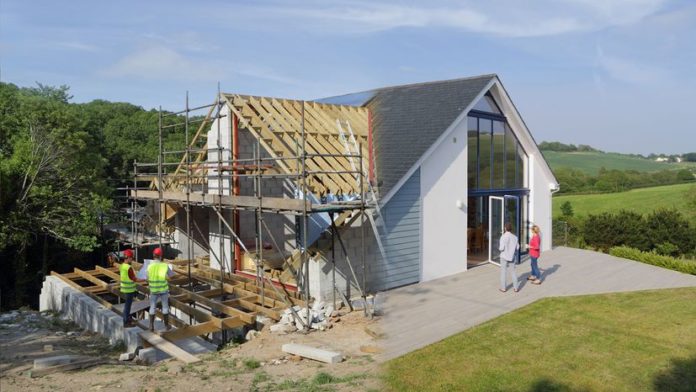 “The cost of building a house depends greatly on where you’re building, the size of the house and the types of interior finishes you add. Peter Cade/Getty Images
“The cost of building a house depends greatly on where you’re building, the size of the house and the types of interior finishes you add. Peter Cade/Getty Images
There are plenty of good reasons why you might want to build your own home. Maybe you already own a nice piece of land. Maybe there aren’t a lot of affordable, high-quality homes in your area. Maybe you want to build an investment property to rent or flip for a profit.
So how much will it cost to build a home from scratch? That’s the million-dollar question (in some housing markets, it’s literally a $1 million question). The truth is that the cost of building a home is going to vary greatly based on three factors:
- Size of the home. A 5,000 square-foot (464 square-meter) home is going to cost considerably more than a 2,000 square-foot (186 square-meter) home.
- Quality of finishes and amenities. Do you want expensive marble countertops in the kitchen and bathrooms or can you live with inexpensive laminate? Luxury upgrades add up fast.
- Geographic location. Like home prices, construction costs vary significantly by region. Expect to pay more in the Northeast and West than in the South.
Cost Comparison: Building a Home vs. Buying
Is it cheaper to build your own house than to buy a brand-new home already on the market? According to 2020 data from the U.S. Census bureau, the average sales price of a new single-family home was $391,900 (median sales price was $336,900) and the average cost to build a home was only $298,500. On the surface, that’s a price difference of close to $100,000.
But it’s important to note that those numbers aren’t an apples-to-apples comparison. The average sales price of $391,900 was what homebuyers paid for both the house and the land it’s sitting on. The $298,500 average cost of building a home was only the "contract price" charged by the contractor to build the home. The cost of the land, if needed, was separate.
What does that mean? It means that if you already own land, then it’s most likely cheaper to build your own place. But if you don’t own land, you might not save much, if any, compared to buying a newly built home. When The National Association of Home Builders (NAHB) surveyed its membership in 2019, it found that the average lot cost nearly $90,000 (for an average lot size of 22,000 square feet or 2,045 square meters).
Keep in mind that the costs listed in this article are for a contractor-built home. In other words, we’re assuming that you are hiring a general contractor to build the home. General contractors add 20 to 30 percent to the total cost of building a home because that’s how they’re compensated for hiring and managing all of the subcontractors.
Twenty to 30 percent is a lot of money! You may be tempted to act as your own general contractor and potentially save tens of thousands of dollars, but it might not be worth it. First of all, it’s a huge time commitment to act as your own contractor, and if you’re new to construction, you’re likely to make a few big and expensive mistakes. Not to mention, some subcontractors will charge you more than they would a professional contractor, so those 20 to 30 percent savings may get eaten up by higher materials and labor costs.
Big-Picture Cost Breakdown
According to the most recent NAHB survey in 2019, the total construction cost for a 2,594 square-foot (240 square-meter) home was $296,652 on average. That’s roughly the same total as the "contract price" calculated by the census bureau in 2020 for a 2,333 square-foot (216 square-meter) home.
Again, we should note that those costs do not include purchasing the land or lot, and that the numbers below are averages that fluctuate significantly by geographic region.
That said, here’s how the NAHB breaks down the cost of building a 2,594 square feet home by each stage of the construction process. (This square footage is the average size of a single-family home in the U.S., according to the NAHB):
 “A rough breakdown of the average costs to build a home. These will vary significantly, however, on every home.NAHB/HowStuffWorks
“A rough breakdown of the average costs to build a home. These will vary significantly, however, on every home.NAHB/HowStuffWorks
As you see above, the most expensive single category when building a home is "interior finishes," which encompasses every door, lighting fixture, toilet, countertop and dishwasher in the house. This category is so expensive because it includes so many different components, each potentially having a substantial cost, says Paul Emrath, vice president of surveys and housing research for the NAHB.
"There are certainly ways to economize and spend less than the average home builder," says Emrath. "Choose a less expensive countertop material, spend less on interior trims or maybe forgo a fireplace."
In the end, it comes down to your personal preferences and your budget. You can easily spend more or less than the national average on interior finishes but beware of "upgrade creep." Every time you say yes to a contractor’s suggestion for a slightly more expensive appliance or plumbing fixture, it’s going to add up.
Do Construction Prices Change from Year to Year?
That’s a good question and the not-so-helpful answer is: sometimes. It is very difficult for even the experts to predict what building material or construction component will increase in price in the near future. For example, no one saw the COVID-19 pandemic coming or the ensuing shortage (and skyrocketing cost) of key materials like lumber.
While global pandemics are thankfully rare, price fluctuations are not, says Emrath. "Some materials ship internationally, like concrete," he says. "A few years ago, we saw a shortage of concrete when the Chinese economy surged and they were simply consuming a lot of the international shipping capabilities."
The numbers we quoted above provide a snapshot of housing construction costs in 2019, before the pandemic. Economists certainly hope, but can’t guarantee, that costs will return to these levels once the post-pandemic economy returns to normal.
This is another important consideration when deciding whether to build or buy an existing home. Do you need it right away? A custom home built by a hired contractor averages 9.7 months from start to finish, says the Census Bureau. Think of it like welcoming a new baby. A new baby that costs $300,000.
Now That’s Cool
The average size of new homes has been steadily shrinking since 2015, when a new single-family home averaged 2,740 square feet (255 square meters). The NAHB believes that the smaller overall sizes reflect a trend of builders adding more entry-level homes to the market.








































